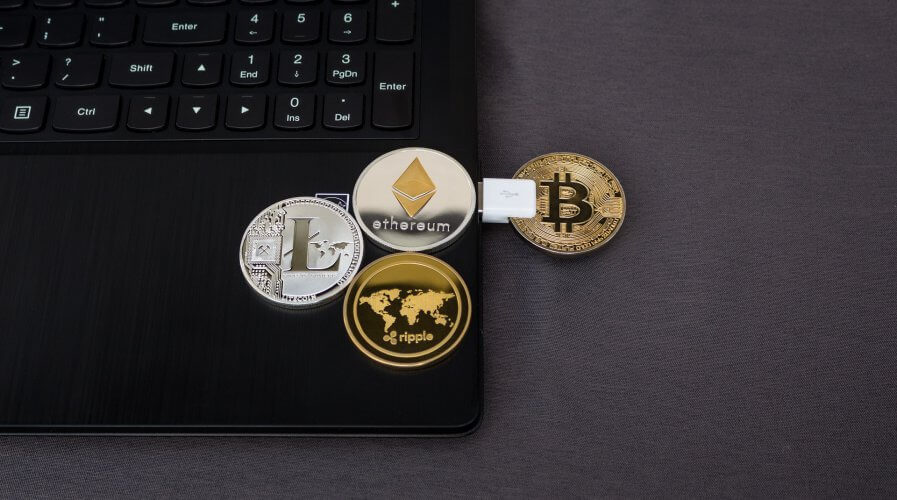
How about letting your investors pay you in Bitcoins? | Source: Pixabay
This is how you can launch an ICO to fund your startup
INITIAL COIN OFFERINGS (ICOs) help startups raise capital by issuing a new digital token in exchange for a more redeemable and valuable cryptocurrency such as bitcoin or ethereum.
So, for example, say you need US$10 million to get your new drone-cum-submarine-video-surveillance manufacturing business up and running, you can launch an ICO.
Before the launch, make sure you can register your tokens on an exchange like Coinbase, GDAX, or Bitfinex.
People will remit to you about 952 bitcoins, per today’s exchange rate of US$10,504 per bitcoin. In exchange, your new business will issue a certain number of tokens to your investors.
Immediately after, you can exchange the more valuable cryptocurrencies you’ve been sent to buy services online or you could cash out in your local currency to pay bills that don’t accept cryptocurrencies.
Your investors, on the other hand, make money when the tokens you’ve issued grow in value.
Being listed on a good exchange like Coinbase is one of the most important things for an ICO since tokens typically don’t give investors any equity stake or voting rights in your company. It’s what drives liquidity and adds to your token’s attractiveness.
If you’d like to see how other people are using ICOs to fund their startups, head over to ICO Alert where you can find links to active, upcoming, and concluded Pre-ICOs and ICOs.
Pre-ICOs are simply token issuances made before an official ICO, often at a discount, to gain funds to pay for the marketing and administration of the ICO event.
.@knowledgetoken has sold over 3 million tokens in presale. Tokenizing and rewarding a person's knowledge is yet another example of how the blockchain is changing the world. Stage 1 of Knowledge ICO ends Feb 25th, don't miss out: https://t.co/SetO2kW1dj
— John McAfee (@officialmcafee) February 13, 2018
Time to roll up your sleeves
If you’re thinking of launching your own ICO because you now understand the basics of what it takes, here’s how you can go about it:
Get the basics sorted
Write up a whitepaper that explains the problem you’re looking to solve, the reason why your solution will help and explain why you need the money.
Also, list down different scenarios that might lead to failure, and factor in existing conditions in your industry, the economy, and prevailing regulations.

Set up the website for your ICO once you’ve found a way to set up the nodes if you’ve chosen the ethereum framework. Source: Shutterstock
Think long and hard about the token you want to issue – calculate the value of your business, how much money you want to raise, and then finally decide how many tokens you will issue. Also, get a lawyer onboard and decide on the terms of issue.
Finally, among the basics, to list your token on an exchange, choose a token symbol that will be easy to remember. Bitcoin, for example, uses BTC, and Ethereum uses ETH.
Do the groundwork
Decide on what token technology to use to issue your tokens. Each has different features and depending on how you want to structure your issue, you need to choose the right framework.
One platform could help you schedule a decreasing rate of discount for investors, enticing them to invest sooner rather than later.
Another could help you refund money to investors in case a minimum target that you’ve set for the ICO isn’t met. If you want to be lazy, just go with the most popular token technology – the ERC20.
Finally, in order to be able to actually work after successfully raising funds using an ICO, find out which countries allow investments into ICOs and which don’t.
Be biased towards investors who come from a country that sees ICOs in a positive light, be blind towards the rest if possible.
Prepare for launch
You know blockchains need hardware and require that you set up nodes, right? It’s the basis of distributed ledger technology. So, for your ICO too, you need the right hardware.
Get a multi-signature wallet, find a way to set up the nodes if you’ve chosen the ethereum framework, and set up the website for your ICO.
Finally, prepare to market your ICO. It’s a very competitive market out there, and investors are super cautious about where they’re going to put their hard-earned money.
Make sure you’re perfectly sure of who you need on your team to help you market your ICO, but make sure you get the right kind of help if you want to be successful.
Interesting developments in ICOs
So, ICOs have been in the limelight for almost two years now. In fact, last year, startups raised US$5.6 billion through ICOs. However, only 48 percent of ICOs were successful last year and more than 10 percent of the funds raised through ICOs have been stolen or lost in hacker attacks.
EY on ICO risks:
– More than 10% of $3.7 bn raised has been stolen
– 25% of ICOs reached their target in Nov vs 90% in June
– FOMO driving valuations, not fundamentals
– code often contains hidden terms
-use of blockchain often unjustifiedhttps://t.co/BKUFTn8X4G pic.twitter.com/Eby3EET6Xy— Anna Irrera (@annairrera) January 22, 2018
More recently, last week, communications app Telegram successfully raised US$850 million through an ICO, as reported to the SEC in a company filing.
And although many nations are taking a tough stance against ICOs, Switzerland, the gold standard for private banking and investments has decided to treat ICOs as just another issuance.
The Swiss Financial Market Supervisory Authority (Finma), in a recent press release, said although each ICO would be decided on a case to case basis, the aim will be to bring in transparency into the system.
The country seemed to be happy to support ICOs given the innovative potential of blockchains.
DEADLINE: 2 days left to apply to #DealCamp (Feb 26 – Mar 1) our early stage investor bootcamp @BerkeleyLawNews covering venture financing terms, cap table structures, deal mechanics, ICOs & much more. Apply today: https://t.co/9JGi1c1XrD pic.twitter.com/V7kxZWAKkJ
— 500 Startups (@500Startups) February 13, 2018
So, if you’d like to raise some funds and get started, make sure you on the right side of the law, have chosen the right jurisdiction and technology, get a great legal and marketing team together, and launch your ICO right away.
If you need help, there’s plenty of online seminars and classroom sessions happening across the globe on ICOs and how they can help your startup. Go check them out and give wings to your dreams.




